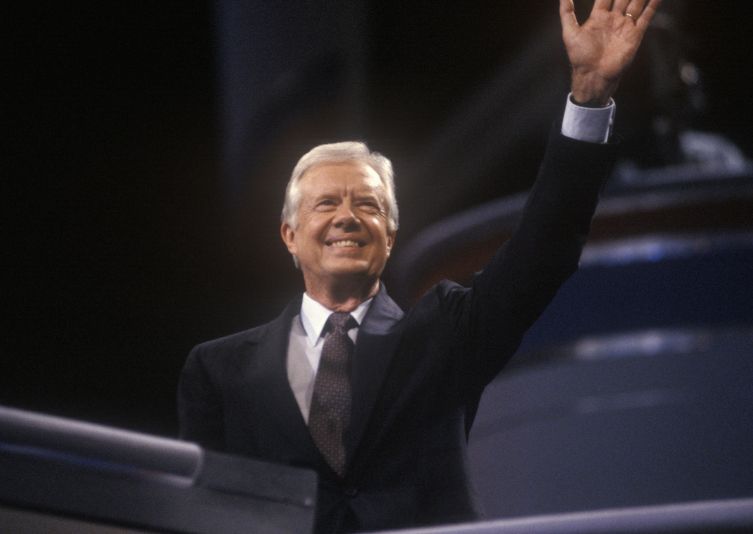Honoring Jimmy Carter’s Legacy of Faith and Service: A Message from Denver Seminary
By: Dr. Mark Husbands, Denver Seminary President
As we observe the National Day of Mourning for President Jimmy Carter, Denver Seminary stands with our nation in honoring a remarkable leader whose Christian testimony transcended political, social, and religious divides. Across his 99-plus years, President Carter exemplified what it looks like to respond to biblical call to action: “He has shown you, O mortal, what is good. And what does the Lord require of you? To act justly and to love mercy and to walk humbly with your God” (Micah 6:8).
From the red clay fields of Plains, Georgia and the polished marble halls of the White House to the most desperate corners of the world, Christian faith gave extraordinary clarity to Jimmy Carter’s journey. Born in 1924, Carter grew up during the Great Depression in a community comprised almost entirely of impoverished African American families. As a young child, his mother, Lillian Carter, instilled in him the values of compassion, fairness, and dignity, while his daily experience exposed him to the injustice of racial inequality.

As Governor of Georgia, Carter boldly declared, “the time for racial discrimination is over,” grounding his commitment to civil rights in the biblical truth that all are created in the image of God. During his presidency (1977-1981), his faith-inspired vision of human dignity and value bore fruit in the historic Camp David Accords between Israel and Egypt. Though his presidency faced significant challenges, from the Iran hostage crisis to economic struggles, Carter’s dedication to addressing the world’s needs with the redemptive power of the gospel presented an authentic and compelling witness to the world. At Camp David, Carter openly expressed his commitment to prayer and shared his faith in Christ with the Israeli and Egyptian leaders, Menachem Begin and Anwar Sadat. Similarly, at a White House dinner, Carter urged Chinese leader Deng Xiaoping to allow freedom of worship, personal ownership of the Bible, and the admission of American missionaries. Xiaoping’s concession to the first two requests contributed, in no small measure, to the dramatic growth of Christianity in China.
Jimmy Carter reimagined the post-presidency, showing what it means to leverage privilege and position to serve the poor, vulnerable, and marginalized. Together, Jimmy and Rosalyn Carter substantially improved mental health care and human rights worldwide galvanizing, for instance, a coalition of global experts and community-based health workers to achieve a staggering reduction in Guinea worm disease. Carter’s love of Christ and neighbor led him to build bridges across the boundaries of income, race, and inequality. Giving voice to what motivated his involvement with Habitat for Humanity, Jimmy Carter said, “Jesus was a carpenter and a builder. Through Habitat, we have been privileged to become builders, too, not only of houses, but of families, lives, and hope.”
On this National Day of Mourning, I urge you to reflect upon President Carter’s loving and faithful service. His life stands as a reminder that biblical faith, vigorous scholarship, and commitment to reconciliation are most fully realized through obedience to Christ and selfless service to others. As we honor the memory of Jimmy Carter, may we find peace in the promise of resurrection and the assurance of Christ’s triumph over sin and death. And let us follow Christ in offering the world a gracious and loving demonstration of justice, mercy, and humility.
